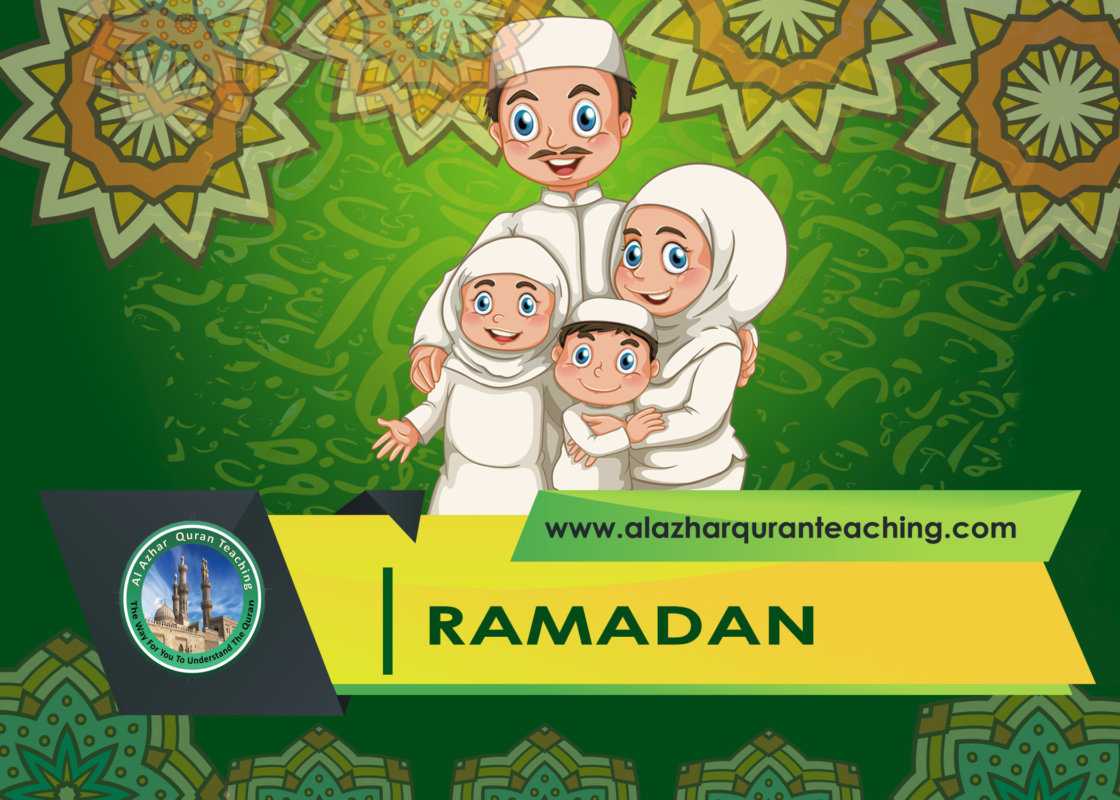Ramadan

Ramadan
What is Ramadan?
Ramadan is an Arabic month which is considered to be a divine gift from Allah (SWT) to all Muslims on Earth. All faithful Muslims are longing for reaching Ramadan and praying to be able to get the most spiritual benefits from the blessed month. They receive it with gladdening hearts which are full of hope to please their Creator and get closer to Him. They pray that Allah (SWT) enables them to increase their good deeds in the month of Ramadan and that He accepts from them so that they can attain Allah’s rewards.
Ramadan is the month of religious fasting in Islam. Fasting in that month is a mandatory ritual such as prayer, paying alms and performing hajj. Narrated Ibn ‘Umar: Allah’s Apostle said: Islam is based on (the following) five (principles): 1. to testify that none has the right to be worshipped but Allah and Muhammad are Allah’s Apostle. 2. To offer the (compulsory congregational) prayers dutifully and perfectly. 3. To pay Zakat (i.e. obligatory charity). 4. To perform Hajj. (I.e. Pilgrimage to Mecca) 5. To observe fast during the month of Ramadan.
(Sahih al-Bokhari), (Book #2, Hadith #7)
An Egyptian intellectual, called Dr Mustafa Mahmoud, once wrote a beautiful thought about fasting in Islam. He said:
“Fasting is an ancient ritual which is common in all religions. Those who like controversy always ask, “How come that God creates for us a mouth, teeth, pharynx and stomach to eat and then asks us to fast?! How come He creates beauty and lust then asks us to lower the gaze and be chaste?! Is that reasonable?
I say to them that it is the only reasonable thing. God gives you a horse to ride and not to be ridden by it. You are supposed to subjugate the horse and lead it, not to be led by it. Your body is your horse which is created for you to ride, control, lead and use for your own purpose. You are not supposed to be subjugated by your body or used to achieve its lusts and desires. Hence, controlling desires, steering whims and bridling stomach are the signs of the true man.
Ramadan is also known as the month of mercy, blessing, forgiveness and salvation from the Hellfire. Narrated Abu Huraira: Allah’s Apostle said, “Whoever observes fasts during the month of Ramadan out of sincere faith, and hoping to attain Allah’s rewards, then all his past sins will be forgiven.”
(Sahih al-Bokhari), (Book #2, Hadith #37)
How to do fasting in Ramadan:
In the month of Ramadan, all adult, sane and healthy Muslims are required to observe fasting from dawn (time of dawn prayer) to sunset (time of Maghrib prayer). Fasting in Islam means to stop eating, drinking and intimacy during the period of fasting. Muslims break their fasting when they hear the call for Maghrib prayer (sunset prayer). Then they are allowed to eat, drink and have intimacy with their spouses till they hear the call for dawn prayer. Sick people do not have to observe fasting, but they are required to make up the days they missed at any time after Ramadan. As for those who cannot pray due to chronic illness or old age then they can feed a poor person for every day in Ramadan.
The Spiritual Benefits of fasting:
Ramadan casts its blessed shade over all aspects of Muslim’s spiritual, social and physical life. Therefore, it has its special effect over the whole community of Muslims and even non-Muslims sharing the same community.
The spiritual benefits of fasting in Ramadan out of sincere faith can be summarized in one phrase: purifying the soul. Abstaining from eating food, drinking beverages and controlling desire during the day of Ramadan help to clear the mind and giving it a chance to contemplate the creation and praise the Creator. It is a great chance for Muslims to get closer to Allah (SWT) through reciting Quran every day in Ramadan, praying at night ( Taraweeh and Tahajud prayer) and giving charity to the poor. Being generous to others is an original principle of Islam, but generosity during Ramadan is something else. “Narrated Ibn ‘Abbas: Allah’s Apostle was the most generous of all the people and he used to reach the peak in generosity in the month of Ramadan when Gabriel met him. Gabriel used to meet him every night of Ramadan to teach him the Qur’an. Allah’s Apostle was the most generous person, even more, generous than the strong uncontrollable wind (in readiness and haste to do charitable deeds). (Sahih al-Bokhari, Book #1, Hadith #5). So inviting a fasting person to your dining table for the sake of Allah guarantees you a great reward from Allah.
Reading the Quran in Ramadan
Reciting the Quran on a regular basis is definitely recommended all over the Muslim’s life, but the journey with the Quran in the blessed month has its special taste. While reading the Quran, you don’t feel that you are just reading the verses, but rather you are directly addressed with those verses by Allah (SWT). Those who recite the Quran every day in Ramadan know what I am talking about. It is a case of serenity, tranquillity and high sensitivity in receiving and interacting with the divine messages. Maybe that is because when your body is set free from physical burdens, it gives chance to your soul to reach its full potential.
Social benefits of Ramadan:
Ramadan casts its tender shade over the Muslim family. Members of the same family have the best chance to meet and sit together on the dining table to recite du’a (supplications) after breaking their fasting. Their hearts are full of reverence and submission to Allah (SWT) so there is no place for hatred, dispute or bickering. Ties of kinship are of the most beloved deeds to Allah (SWT), so good Muslim can never miss enhancing their kinship during Ramadan.
When you receive the blessed month of Ramadan with true intention to mend what is between you and Allah (SWT), then Allah (SWT) will mend what is between you and other people. So the effect of the blessed month prevails over the whole society. People gather in Masjids (mosques) to pray Taraweeh (night prayer in Ramadan) surrounded by Allah’s mercy and His angels who pray for them to attain Allah’s forgiveness and compassion. In such a woundeful atmosphere, ties among people get stronger and they love each other for the sake of Allah (SWT).
Fasting can be the bridge over which the rich should cross to meet the poor and realize their needs. Most rich Muslims pay their zakat (alms) in Ramadan. They use their money which originally belongs to Allah (SWT) to support poor families and cover their needs. They do it out of piety to achieve solidarity and coherence in society.
Health benefits of fasting:
The health benefits of Fating cannot be ignored. Fasting the month of Ramadan can:
• promote detoxification
• help the digestive system to rest
• help to heal inflammation
• help reduce blood sugar levels
• help increase fat burning
• be useful for people with high blood pressure
• promote losing weight
• enhance the immune system
• promote healthy eating habits
• help in treating addiction
Title: Ramadan
Description:
Ramadan is an Arabic month which is considered to be a divine gift from Allah (SWT) to all Muslims on Earth. It is the month of religious fasting in Islam. Fasting in that month is a mandatory ritual such as prayer, paying alms and performing hajj. Ramadan is also known as the month of mercy, blessing, forgiveness and salvation from the Hellfire. Ramadan casts its blessed shade over all aspects of Muslim’s spiritual, social and physical life. Therefore, it has its special effect over the whole community of Muslims and even non-Muslims sharing the same community.

